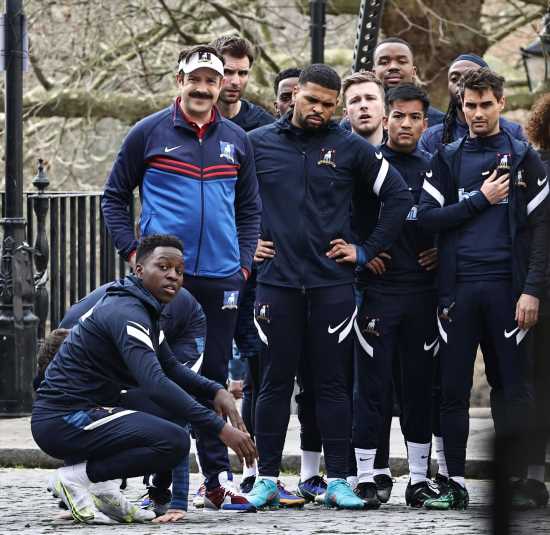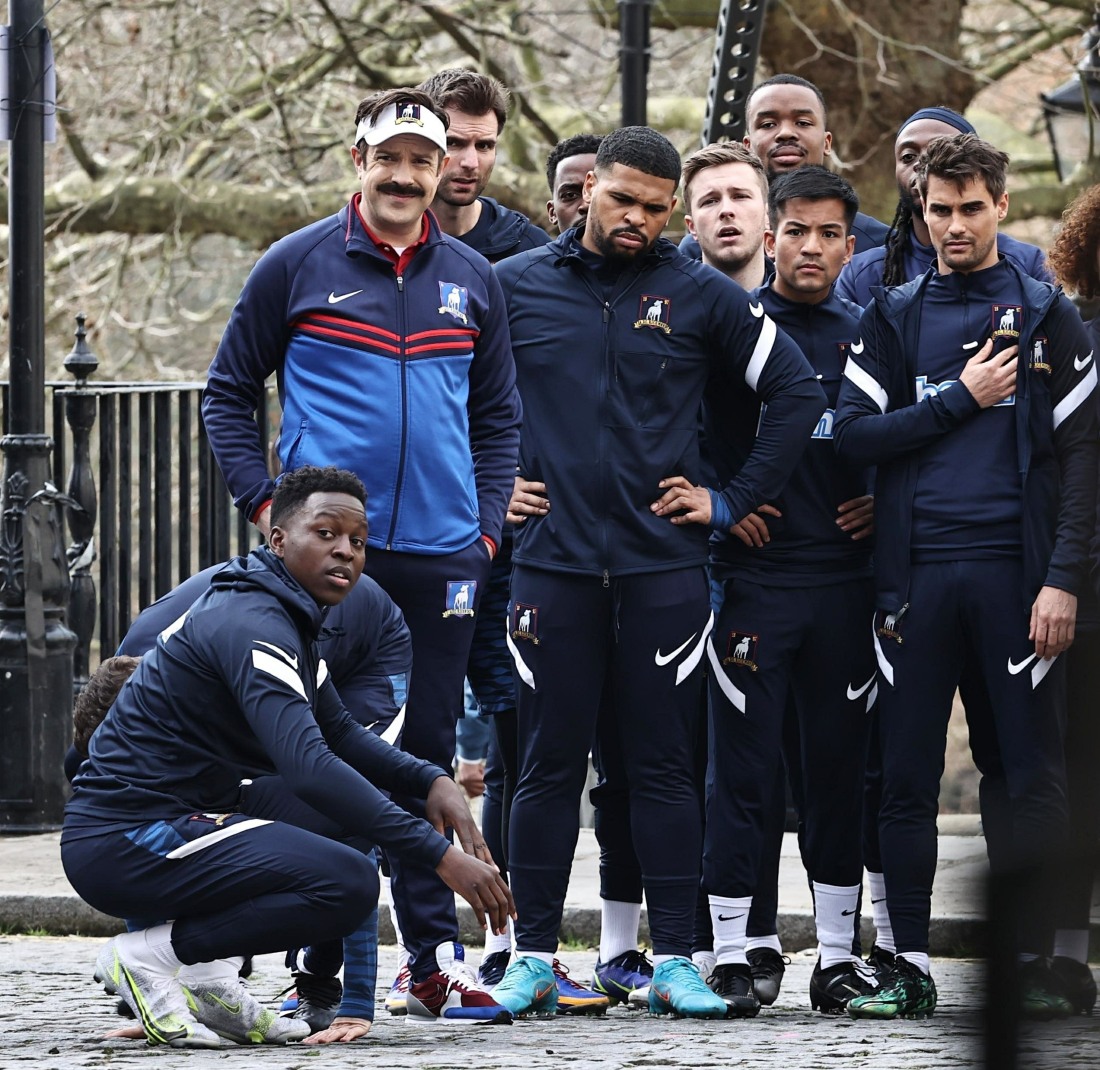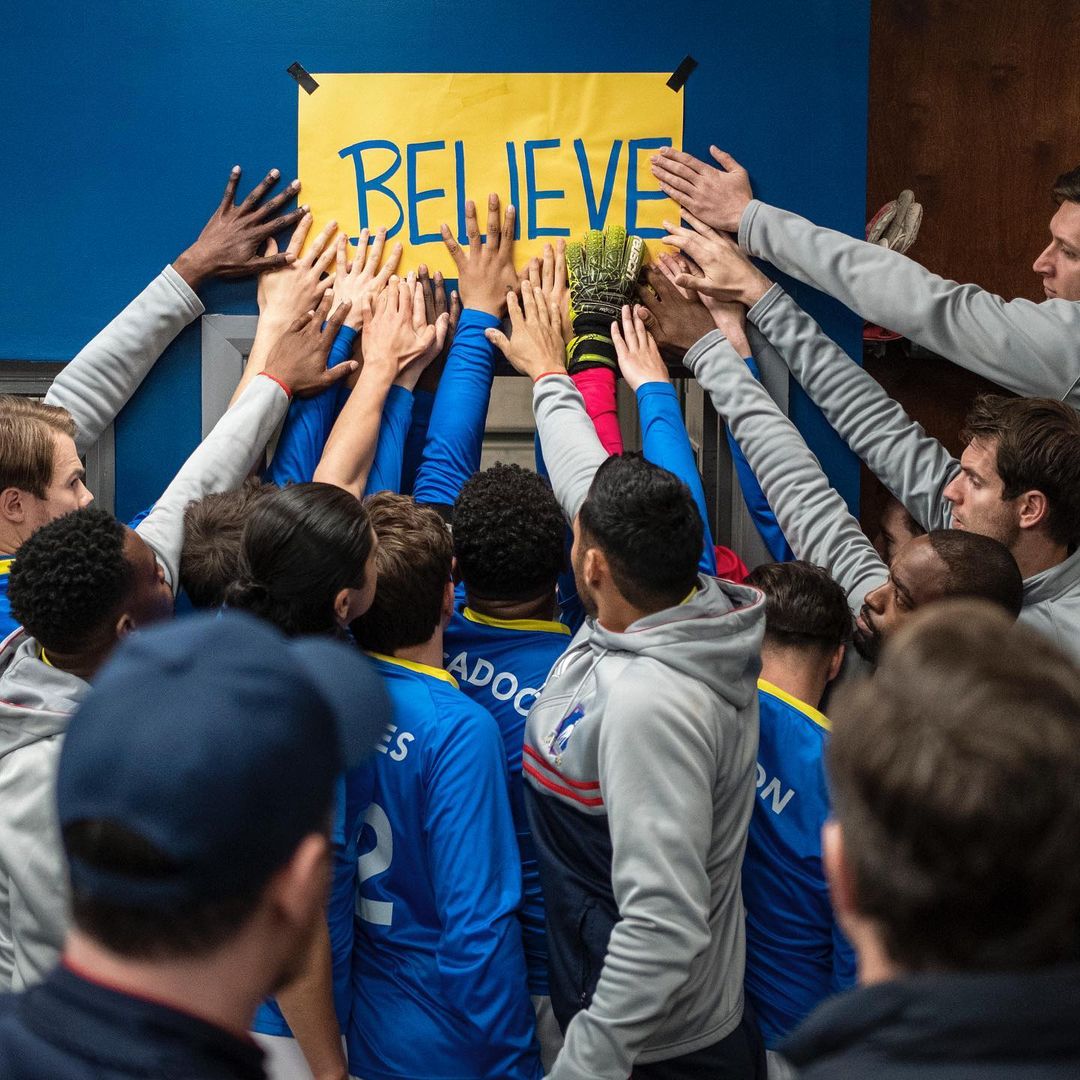SPOILERS for this season of Ted Lasso.
It’s felt like a dirty secret, something no one wants to admit over the past month: the third and final season of Ted Lasso is bad. I enjoyed the first two seasons, and even applauded some of the more unconventional storylines, because I believed in the show and I believed that Jason Sudeikis knew where he was going. But this third season has left me questioning if Sudeikis and the other writers have any f–king idea how they’re going to end this show. The Atlantic’s David Sims feels the same way. Sims wrote a piece called “Ted Lasso Has Lost Its Way,” and I just wanted to do a few highlights from the piece:
Midway through watching “Sunflowers,” a nearly feature-length episode of Ted Lasso that juggles five separate plotlines, I wondered aloud, “When exactly did this show turn into a prestige drama?” Yes, the script still has plenty of jokes—though few of them deserve more than a low chuckle, and many characters are little more than caricatures. But as it’s continued to draw viewers and accolades for Apple TV+, this Emmy-winning comedy has pivoted further and further away from the genre to which it supposedly belongs, devolving into ham-fisted, novelistic nonsense.
…Ted Lasso’s first season earned its massive hype; it was a well-crafted workplace sitcom that built out its central character’s leadership strengths step by step, methodically depicting how Ted’s emotional intelligence more than makes up for his lack of tactical acumen. The show’s propensity for “niceness” was radical and surprising, somehow allowing it to generate laughs while dodging conflict.
Season 3, which debuted on Apple TV+ in March and is rounding into what may or may not be a series finale, is a pure example of the excesses that can flourish on streaming television. The show has no time slot to worry about, and none of the formal or thematic constraints of network television. Perhaps that’s why its episodes have settled into such supersize lengths, with “Sunflowers” running an ungodly 63 minutes. Its storytelling feels similarly slack, with characters taking whole seasons to have the slimmest emotional realizations.
Now, in Season 3, these supplementary characters have all become the stars of their own shows. Ted Lasso is no longer a workplace sitcom but a universe of workplace sitcoms, drifting from a football club to an upstart PR firm to another (more evil) football club to a pair of local restaurants. Scenes are devoid of jokes and filled with dopey, self-important monologuing on the issues of the day. Rather than have any conflict, characters offer endless hugs and wan smiles, all under the watchful mustache of Mr. Lasso, whose retinue of dad jokes feels noticeably phoned in.
[From The Atlantic]
I agree – and while I don’t mind the longer episodes, it feels like the show is just doing these longer episodes because they’ve stupidly split up all of the characters and feel the need to give everyone their own “moments” and storylines. Which would be fine if those storylines felt organic and there was some kind of masterful story being told. Instead, we get Keeley off in her own universe, suddenly having a relationship with a rich, judgemental, love-bombing a–hole. We get Roy and those red strings. We get Jason Sudeikis working out his Olivia Wilde mess on-screen.
In the first two seasons, you could also depend on Coach Lasso’s baseline managerial competence too, only that’s gone away now. Like, I get the criticism of “Lasso is actually a terrible football coach,” but in the first two seasons, he proved himself to be an inspired and intuitive manager, the kind of person who understands what people need and how an organization (or team) should operate. The “slump” of the team seemed to be the characterization of the real-world slump of the writers’ room.
Joanna Robinson mentioned something on Twitter this week, a rumor she heard that “they threw out 2/3 of the season and had to shoot it over again (it was supposed to come out last fall) which would explain things like Rupert and Zava fully disappearing from the plot. But it would not explain why the second pass is this messy.” Extensive reshoots and tossed scripts would explain some of this. But I’m also not convinced that Sudeikis knows how to land this plane.
Photos courtesy of Instagram/AppleTV, Backgrid and Avalon Red.
Source: Read Full Article







